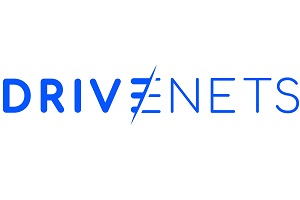KDDI deploys DriveNets Network Cloud as internet gateway peering router

DriveNets, a provider in cloud-native networking solutions, has announced that Japanese telecommunications provider KDDI Corporation has deployed DriveNets Network Cloud as its internet gateway peering router.
DriveNets Network Cloud provides carrier-grade peering router connectivity across the KDDI network, enabling KDDI to scale its network and services, while reducing hardware requirements, lowering costs, and accelerating innovation. Additional applications will be deployed on DriveNets Network Cloud in the future.
“KDDI prides itself on deploying the most advanced and innovative technology solutions that allow us to anticipate and respond to the ever-changing usage trends, while providing considerable value to our customers,” says Kenji Kumaki, Ph.D. general manager and chief architect, technology strategy and planning, KDDI Corporation. “DriveNets Network Cloud enables us to quickly scale our network as needed, while controlling our costs effectively.”
“While many of Japan’s service providers have been aggressively pursuing the virtualisation of network functions on their 4G and 5G networks, disaggregation of software and hardware in service providers’ routing infrastructure is just getting started,” says Ido Susan, DriveNets’ co-founder and CEO. “I am extremely proud that our Network Cloud solution was selected by KDDI, a leading innovative service provider, and is already deployed in their network, supporting the needs of KDDI’s customers.”
The deployment of DriveNets Network Cloud on the KDDI network is the culmination of several years of testing and verification in KDDI’s labs. It also reflects the growing adoption of disaggregated architectures in service provider networks around the world.
“The move to disaggregated networking solutions will continue to be a prevailing trend in 2023 and beyond as savvy service providers try new technologies that can enable them to innovate faster and reduce costs. We are now seeing this technology also adopted in other high-scale networking environments, such as AI infrastructures,” says Susan.
Compared to traditional routers that are comprised of software, hardware and chips from a single vendor, a distributed disaggregated backbone router (DDBR) solution combines software and equipment from multiple vendors, allowing service providers to break vendor lock and move to a new model that enables greater vendor choice and faster scale and introduction of new services through modern cloud design.
In addition to KDDI, DriveNets is already working with other service providers in Asia Pacific to meet the growing interest in its disaggregated networking solutions in the region. In mid-2021, the company established a Tokyo-based subsidiary to enhance its presence in the region.
DriveNets offers an architectural model similar to that of cloud hyperscalers. DriveNets Network Cloud includes an open ecosystem with elements from silicon vendors and original design manufacturers (ODMs), certified by DriveNets and empowered by our partners, which ensure the integration of the solutions into providers’ networks.
Learn more about DriveNets Network cloud here.
Comment on this article below or via Twitter @IoTGN
